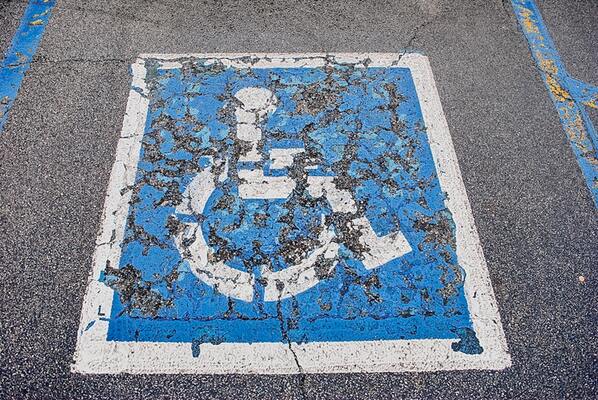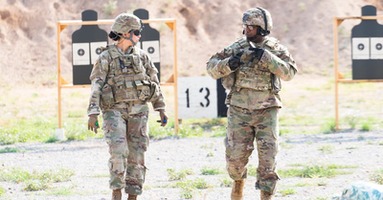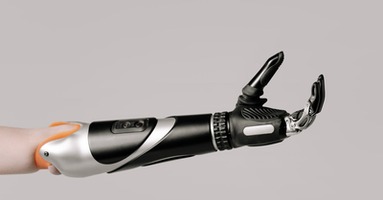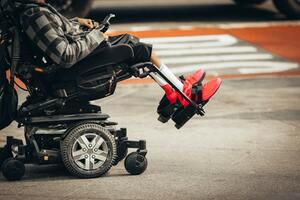
Get Disabled Veteran License Plates in California
What is Disability Parking?
Disability parking refers to designated parking spaces reserved for individuals with physical or medical conditions that limit their mobility. These spaces are marked with the universal wheelchair symbol and are typically located near building entrances for convenience. Disability parking allows individuals to access facilities and services without undue physical strain.
Who Qualifies for a Disabled Veteran License Tag?
To qualify for a disabled veteran license tag in California, you must meet certain criteria outlined by the Department of Motor Vehicles (DMV):
Be a veteran who has sustained a service-related disability, certified by the U.S. Department of Veterans Affairs (VA).
The disability must impair mobility or require the use of assistive devices such as a wheelchair or cane.
Specific medical conditions, such as the loss of a limb or limited lung function, are typically qualifying factors.
Medical Conditions That Qualify for a Disabled Veteran License Plate in California
The state of California honors its veterans who have sustained service-related disabilities by offering specialized Disabled Veteran License Plates. These plates not only acknowledge the sacrifices made by veterans but also provide practical benefits, such as enhanced accessibility and parking privileges. To qualify for this license plate, applicants must meet specific medical criteria as outlined by the Department of Motor Vehicles (DMV). This article delves into the range of medical conditions that typically qualify for a Disabled Veteran License Plate in California, providing DVs with a comprehensive guide to the eligibility requirements.
1. Mobility Impairments
Mobility impairments are among the most common conditions that qualify for a Disabled Vets License Plate. These conditions significantly impact a DVs ability to move independently or without assistance. Examples include:
- Amputation of Limbs: Vets who have lost one or more limbs, either during combat or due to service-related conditions, are automatically eligible. Amputations significantly impair mobility and often require the use of prosthetics or mobility aids.
- Paralysis: Conditions resulting in partial or total paralysis, such as spinal cord injuries sustained during service, qualify under mobility impairments. Paralysis can severely restrict movement and necessitate assistive devices like wheelchairs.
- Severe Joint Disorders: Chronic conditions like osteoarthritis, rheumatoid arthritis, or joint injuries related to service that lead to stiffness, pain, or limited range of motion are qualifying factors.
2. Respiratory Conditions
Respiratory conditions that impair a vet’s ability to breathe normally or exert physical effort are qualifying medical conditions. These conditions often limit stamina and overall mobility. Examples include:
- Chronic Obstructive Pulmonary Disease (COPD): COPD is a progressive lung disease that makes breathing difficult, often exacerbated by exposure to hazardous substances during military service.
- Asthma: Severe, service-related asthma cases that cause frequent breathing difficulties may qualify, particularly if physical activity exacerbates symptoms.
- Pulmonary Fibrosis: This condition involves scarring of lung tissue, leading to reduced oxygen levels in the bloodstream and difficulty performing physical activities.
3. Cardiovascular Conditions
The heart plays a vital role in maintaining physical activity. Cardiovascular conditions that limit a Vets ability to exert themselves or require regular medical intervention are recognized as qualifying conditions. Examples include:
- Congestive Heart Failure: This condition affects the heart’s ability to pump blood efficiently, leading to fatigue and shortness of breath.
- Coronary Artery Disease (CAD): Severe cases of CAD, often resulting in reduced blood flow to the heart, can impair physical activity and qualify Vets for the plate.
- Post-Heart Surgery Conditions: Vets recovering from heart surgeries, such as bypass surgery or valve replacement, who face ongoing mobility challenges, may be eligible.
4. Neurological Disorders
Neurological disorders that impact motor skills, coordination, or the ability to perform daily tasks are considered qualifying conditions for a Disabled Veteran License Plate. Examples include:
- Traumatic Brain Injury (TBI): Vets who have sustained TBIs that result in cognitive impairments, motor dysfunction, or chronic headaches may qualify.
- Multiple Sclerosis (MS): MS is a progressive neurological condition that can cause muscle weakness, fatigue, and coordination issues.
- Parkinson’s Disease: Service-related Parkinson’s disease can cause tremors, rigidity, and impaired balance, severely impacting mobility.
5. Visual Impairments
Severe visual impairments that restrict a Vets ability to navigate independently are considered qualifying conditions. These may include:
- Blindness: Total or partial blindness caused by service-related injuries or conditions qualifies for a Disabled Vets License Plate.
- Retinal Diseases: Conditions like retinitis pigmentosa or macular degeneration, which impair central or peripheral vision, may also qualify.
6. Hearing Impairments
While hearing impairments alone may not typically qualify for a Disabled Vets License Plate, certain severe cases where the impairment affects balance or is accompanied by other qualifying conditions, such as Meniere’s disease, may be considered.
7. Chronic Pain Conditions
Vets suffering from chronic pain conditions that impair their mobility or ability to perform daily tasks may also qualify. These conditions often result from injuries sustained during military service. Examples include:
- Chronic Back Pain: Severe back pain caused by spinal injuries, herniated discs, or degenerative conditions qualifies if it limits mobility.
- Complex Regional Pain Syndrome (CRPS): This condition causes chronic pain, often affecting the limbs, and can severely restrict physical activity.
8. Amputation or Loss of Function
Amputation or loss of function in any limb due to service-related injuries is one of the most straightforward qualifications for a Disabled Vets License Plate. This category includes:
- Loss of One or More Limbs: Vets who have had arms, legs, hands, or feet amputated due to combat or service-related incidents.
- Severe Impairment of Limb Function: Conditions that cause significant loss of strength, coordination, or functionality in one or more limbs.
9. Post-Traumatic Stress Disorder (PTSD) with Physical Manifestations
While PTSD is primarily a mental health condition, Vets whose PTSD results in physical symptoms that impair mobility or daily functioning may qualify. For example:
- Panic Disorders with Physical Symptoms: PTSD can lead to symptoms such as dizziness, fainting, or muscle weakness, which can impact mobility.
- Physical Responses to Triggers: Severe physical reactions to stress or trauma-related triggers, such as muscle tension or immobility, may also be considered.
10. Cancer and Related Conditions
Vets diagnosed with cancer due to exposure to hazardous substances during service, such as Agent Orange, may qualify for a Disabled Vets License Plate if their condition impairs mobility or physical function. Examples include:
- Bone Cancer: Cancer affecting the skeletal system can lead to fractures, pain, and loss of mobility.
- Lung Cancer: Respiratory impairments caused by lung cancer can significantly limit physical activity.
11. Diabetes with Severe Complications
Severe diabetes cases that result in mobility impairments or loss of function qualify. These complications may include:
- Peripheral Neuropathy: Nerve damage in the hands or feet can cause pain, numbness, and difficulty walking.
- Amputation Due to Diabetes: Vets who have undergone amputations due to diabetic complications qualify automatically.
12. Autoimmune Diseases
Service-related autoimmune diseases that impair mobility or cause chronic pain are eligible conditions. Examples include:
- Lupus: A chronic autoimmune disease that can cause joint pain, fatigue, and organ damage.
- Rheumatoid Arthritis: A condition that leads to joint inflammation, stiffness, and loss of mobility.
13. Burns and Skin Conditions
Severe burns or skin conditions that restrict movement or cause chronic pain are also qualifying conditions. Examples include:
- Third-Degree Burns: Burns covering large portions of the body that limit mobility or require the use of assistive devices.
- Severe Scarring: Scarring that restricts joint movement or causes chronic discomfort.
14. Eligibility Certification Process
To qualify for a Disabled Veteran License Plate in California, DVs must provide the following documentation:
- VA Certification: A letter from the U.S. Department of Vets Affairs (VA) confirming the service-related disability.
- Medical Records: Documentation from healthcare providers outlining the severity and impact of the condition.
- DMV Application: Complete and submit the appropriate DMV forms, such as the REG 195.
The DV License Plate in CA is a recognition of the sacrifices made by DVs and an effort to improve their mobility and access to essential services. A broad range of medical conditions qualify, encompassing physical, neurological, respiratory, and other impairments that limit mobility or functionality. If you or a loved one believes you may qualify for this program, it’s important to consult with the VA and the DMV to ensure proper documentation is in place. For further assistance, HandicapMD.com can help streamline the application process and provide the necessary medical certifications to secure this valuable benefit.
What are Disabled Ex-Soldier Tags Online?
Disabled Ex-Soldier tags, often able to obtain disabled veteran license plates online, signify that the vehicle belongs to a DV with a qualifying disability. These tags provide specific parking privileges, including access to disability parking spaces and sometimes exemptions from parking fees. With online services like HandicapMD.com, applying for these tags has become more streamlined and accessible.
How Do I Get a Disabled Ex-Soldier License Tag in California?
Applying for DV License Plates
Obtaining a disabled Ex-Soldier license tag in CA is straightforward with HandicapMD.com. Follow these three simple steps:
Complete the Online Application
Visit HandicapMD.com/application and fill out the online form with your details. This includes providing proof of your service and medical documentation.Complete the Certification for Disabled DV License Plates (REG 256V) Form
We will send you the REG 256V form, which is required for the application.
Online Disabled Ex-Soldier Tag Evaluation
Schedule a telehealth evaluation with a licensed physician who will review your medical records and determine your eligibility.Get Approved and Submit to the DMV
If approved, you’ll receive the necessary documentation to take to the DMV. HandicapMD offers a 100% risk-free money-back guarantee if your evaluation is not approved.
Why Should You Consider a Disabled Ex-Soldier License Tag Online?
Applying online for a disabled Ex-Soldier license tag provides numerous benefits:
Convenience: Complete the process from the comfort of your home.
Efficiency: Faster approval times compared to traditional in-clinic evaluations.
Risk-Free Guarantee: HandicapMD ensures you get your money back if your evaluation is not approved.
Expert Guidance: Licensed professionals with experience in ADA guidelines handle your application.
What is the Medical Certification Section of the Application?
The medical certification section of the application requires a licensed physician to verify the applicant’s disability. This certification ensures that the applicant meets the legal criteria for receiving a disabled Ex-Soldier tag. It typically involves describing the disability, its impact on mobility, and whether assistive devices are needed.
Who Can Prescribe Disabled Ex-Soldier Tags in California?
Only licensed medical professionals, such as physicians, surgeons, or chiropractors, can certify the medical eligibility required for a disabled Ex-Soldier tag. The professional must complete and sign the medical certification section of the DMV application form.
Different Types of California Disability Parking Tags
CA offers several types of disability parking tags:
Permanent Placards: For individuals with permanent disabilities.
Temporary Placards: For temporary disabilities lasting less than six months.
Disabled DV License Plates: Specifically for disabled DVs who meet the eligibility criteria.
Travel Placards: For residents traveling out of state.
Where Can I Get a Disabled Ex-Soldier Tag Near Me in California?
You can apply for a disabled Ex-Soldier tag through HandicapMD.com. Start by visiting HandicapMD.com/application, complete the evaluation, and receive your medical certification to submit to the DMV.
How Long is a Permanent Disability Tag Good for in California?
A permanent disability tag is valid for two years. Renewal notices are sent automatically, and renewals can often be completed online or by mail.
Can a Family Member Apply on Behalf of the Individual?
Yes, a family member can assist in applying for a disabled Ex-Soldier tag, provided they have the necessary documentation and authorization from the individual.
Can I Use My Disability Tag in Other U.S. States?
Yes, disability tags are recognized in other U.S. states under the Americans with Disabilities Act (ADA). However, it’s advisable to check local regulations when traveling.
Can I Use My Disability Tag in Other Countries?
Some countries honor U.S. disability tags, but it’s best to check the specific country’s regulations before traveling.
How Long Does it Take to Get a Renewal Card in California?
Renewal cards typically arrive within two to four weeks of submitting your renewal application.
Where to Hang the Tag/Permit
Disability tags or placards should be hung on the rearview mirror when the vehicle is parked. Ensure it is removed when driving to avoid obstructing your view.
Are There California Disabled Veteran Plates?
Yes, The golden State offers disabled DV plates for qualifying DVS. These plates come with additional benefits, such as free parking in some locations.
How Do I Get a Disability Veteran License Plate in California?
To obtain a disability DV license plate, you need:
A completed application form (DMV Form REG 195).
Medical certification from a licensed physician.
Proof of service-related disability from the VA.
How to Use Your Disability Parking Permit in California?
Only park in designated disability parking spaces.
Display your placard or license plate prominently.
Adhere to all local parking rules.
What are the Rules for Handicap Parking in California?
law prohibits:
Using a disability placard if you’re not the authorized user.
Parking in disability spaces without a valid placard or plate.
Lending your placard or plate to others.
Is Disability Parking Free in California?
In many locations, parking is free for vehicles with a valid disability placard or plate. However, some private lots may still charge fees.
Why is Now a Good Time to Apply for a Disability Tag Online?
Increased accessibility of online services like HandicapMD.com.
Faster processing times.
Convenience during travel or holiday seasons.
What to Consider When Choosing an Online Disability Evaluations Doctor
Licensing: Ensure the doctor is licensed.
Experience: Look for specialists familiar with ADA and DMV regulations.
Guarantee: Services like HandicapMD.com offer a money-back guarantee if your evaluation is not approved.
Online Disability Tags vs. Traditional In-Clinic Disabled Permits
| Feature | Online Services | In-Clinic Evaluations |
|---|---|---|
| Convenience | High | Low |
| Time Required | Minimal | Longer |
| Accessibility | Anywhere with internet | Location-dependent |
Pros and Cons of Online Services for Your Placard Evaluation
Pros:
Saves time and effort.
Accessible from anywhere.
Expert evaluations.
Cons:
Requires internet access.
May not be suitable for non-tech-savvy individuals.
Maximizing Your Disability Parking Tag
Keep your tag updated.
Use it only when necessary.
Familiarize yourself with local parking laws.
Things You’ll Need
Proof of disability.
DMV application form.
Medical certification.
Proof of status (if applicable).
California and Disabled Permits in the News
How to Get a Disabled Parking Badge Online with HandicapMD.com
Applying through HandicapMD.com simplifies the process. Visit HandicapMD.com/application, complete the evaluation, and receive your certification quickly and efficiently.
With this detailed guide, obtaining a disabled Ex-Soldier tag in California is easier than ever. Let HandicapMD.com assist you in securing your parking privileges today.
.png)





